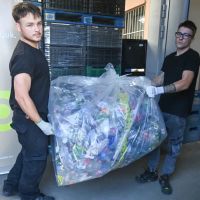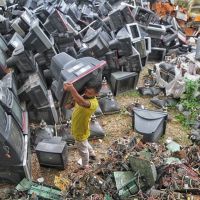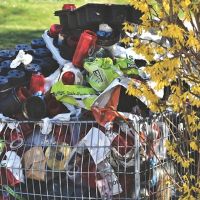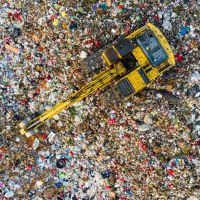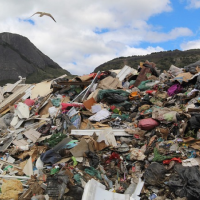Happy Waste Dumps
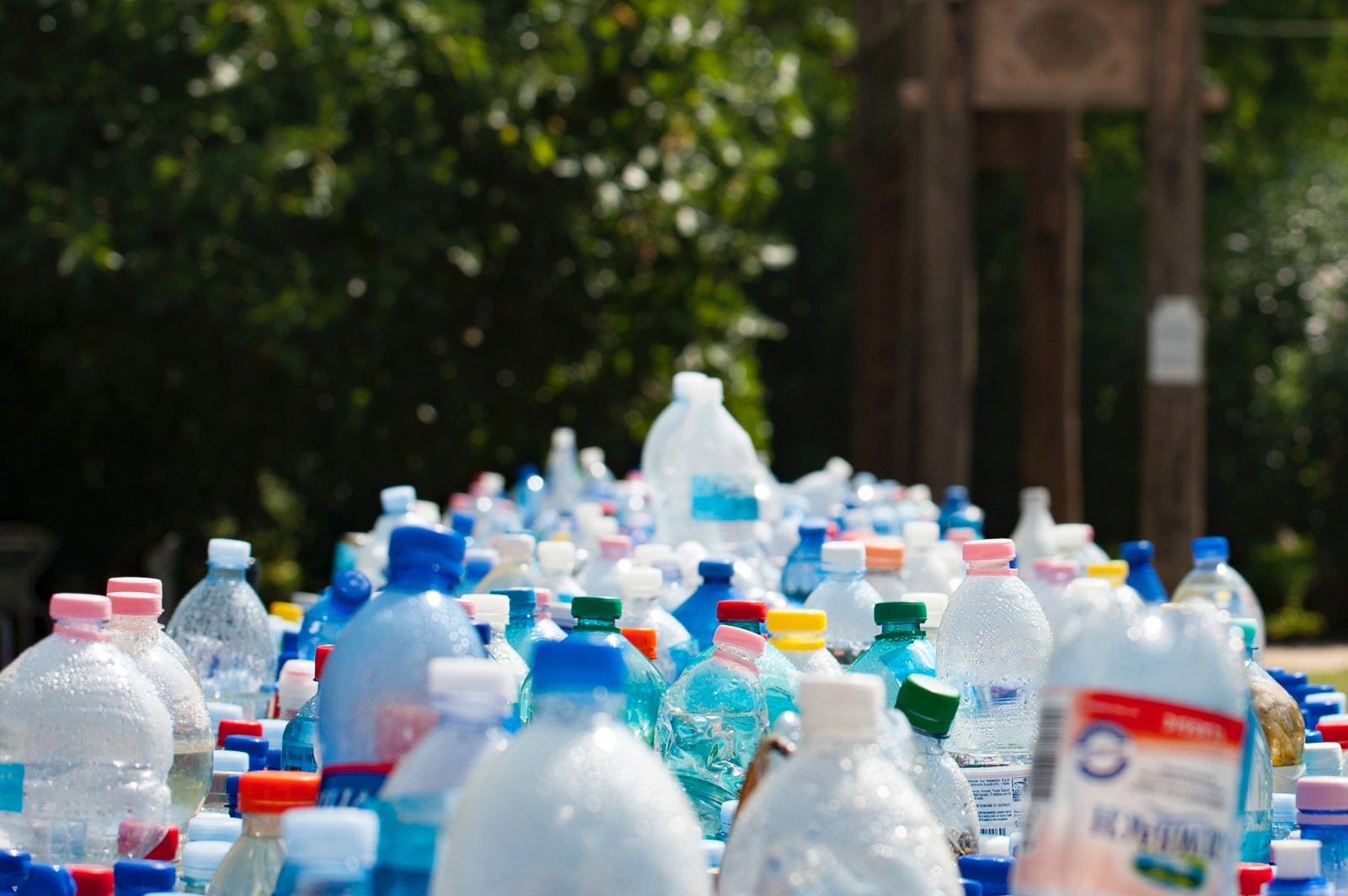
After five years of preparation, the law on environmental products tax was introduced in 1995. The law serves to save natural resources and create funds for restoration after accidental damage. The government negotiated the draft with representatives of industrial corporate systems and multinational companies who left nothing to chance.
The story is so complicated that it is as difficult to digest at first reading as plastic waste is. That is the problem The plastic waste piled in dumps lies heavy in our stomaches, not only in a figurative sense, but the resulting environmental pollution sooner or later has serious effects on our health, literally.
The law in question deals with tax to be paid after the production of fuel, tyres, refridgerators, storage batteries, and packaging material.
The law calculates the tax owed, based on the quantity of taxable product and describes occasional (investments) and regular (operation of systems for reuse, reprocessing, burning and collecting) subsidies.
(Plastic) Bottled Madness
The law fixes the tax due according to the type of material used. The tax is low; e.g. 2 Ft/kg for glass, 10 Ft/kg for plastic, a third of the level set in western Europe, where there is also a much greater difference between them (15-20 times). Nevertheless, even this low tax is easy to get round. If the producing company collects back and utilizes a certain proportion of the packaging material, it's whole production will be freed of the product tax. In 1996 it was enough to collect 12.5% and in 1997 25% of plastic waste, and a company freed itself from any liability for tax. It followed that the multinational soft drink companies got rid of their 1 litre bottles and by introducing a returnable plastic bottle saved themselves from paying the product tax for their entire throwaway product packaging.
Even those making a wonderful effort and collecting back as little as 12,5% get an enormous reduction. In 1995, according to a complicated formula, if 5% of the production waste was documented as selected waste collection, a grand saving could be made - 40% of the tax owed on the whole production.
Members of Parliament knew nothing about the rebate calculating formula. Those with a vested interest did, however.
The above mentioned rates are far from the European Union regulations which assess that by 2000, 50-65 % of packaging waste has to be collected.
Collective hysteria
The law, rather than forbidding the incineration of packaging waste, sets it as an objective. It refers to incineration as gaining energy, ven though burning is destruction of valuable secondary raw materials which could be reused. Given that taxes can be reduced by incinerating mixed plastic waste this regulation might lead to uncontrollable emission.
Hungarian legislation, therefore, instead of preventing waste, supports it's collection and reuse, the related expenses being paid for in the long run by the consumer. It is well-known that legislation in Western countries does not support energy- and resource-saving packaging techniques either but force their citizens to do the senseless selection for free.
Most of the selectively collected plastic waste is not suitable for re-utilization. The law does not deal with reduction of throw away packaging and lessening the waste problem. It does not even mention returnable packaging as an option.
Restrictions are missing on the production and importation of packaging materials which are responsible for dangerous solid waste or emission. It has been proved that PVC (e.g. containers of drinks and lemon juice) as well as metal/foil packaging ("paper" of chocolate bars, bags of crisps) are dangerous. During incineration they emit heavy metal particles and gases containing hydrochloric acid, dioxine and phurane.
Establishing systems for waste prevention is not subsidised by the fund. Information dissemination on waste prevention, establishing and financing environmental education are also missing.
To burn or to refill?
Both the conditions for re-utilization and the financing structure are missing. Compared with the throw away system, establishing modern and environmentally friendly systems needs huge investment: washing mashines for bottles and crates which reuse and clean water, storage systems.
 |
| Happy gulls |
When returnable systems are driven into the background, less packaging is made of wood, glass and textile. They are replaced with several types of metal, plastic and combined packaging which are either imported or produced by foreign companies here using imported raw materials (e.g. Tetra Pak). On top of this, the deposit is so low that it doesn't give sufficient incentive to return the packaging. That is why most returnable packaging is thrown away.
Standardization is essential for returnable systems to work. In Hungary the trend is in the opposite direction: companies compete in creating individual containers and crates. Then the packaging has to be transported over hundreds of miles to the exclusive manufacturer. Commercial companies have to store each type separately. It is difficult to keep up the deposit system as the shopkeeper has to refuse the consumer, saying: " sorry, we don't sell this type."
The type of material is usually not marked on throw-away packaging. Labels with the type of packaging material (PE, PVC, PET, PS or PP) can be found on the bottom of products made in Western Europe. There is no sense in introducing any selective waste collection system without these labels. Most plastic-reprocessing companies specify the types of plastic they can utilize. Messy piles of plastic containers and bags don't fulfill the requirements of quality and hygiene required for utilization.
Among the regulary subsidised activities is 'utilizing plastics for energy' , the subsidy for which is 5 Ft/kg. Collection for reuse is subsidised at the same amount. This implies that plastic waste is just as suitable for burning as for reuse - at least this is what our government suggests.
Despite the fact that it is not economic, legislative bodies support the idea of recycling combined packaging waste (e.g. Tetra Pak boxes) which are produced using plenty of energy and raw materials and for which no cost-efficient recovering system exists.A factory in Budaors has implemented the technology for recovering paper fibres but there is still no solution for plastic and metal components.
Sharing
Production companies pay product tax to a fund belonging to the Ministry of Environment. It is easy to avoid paying the tax - so the fund is rapidly decreasing. The consumer has to pay for selective waste collection, although it is not clear how it is operating. One thing is sure - burning at the end.
The product tax is not to prevent waste and encourage environmentally friendly consumer behavior - it has lost it's original purpose Neither is it appropriate for introducing environmentally friendly alternatives in the packaging market.

